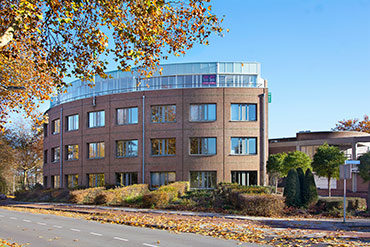At the end of 2018, CCS Energie-advies has delivered a fermentation installation with manure processing. The installation was placed at the Hans Nijkamp company, in Bathmen, near Deventer. The plant processes manure into a thick fraction, a low-mineral, thin fraction and two types of artificial fertilizer substitutes. In the course of this year the fermentation installation will be connected to a biogas hub. Two fermenters will be connected to this biogas hub together with this installation. These will provide biogas for various companies in Deventer. In addition, this installation is equipped with another innovative installation. In a newly developed duckweed pond it is investigated to what extent it is possible to feed cows with duckweed as a protein source.
A fermentation installation consists of a complex of different parts. The fresh manure, directly from the barn, goes to a mono-manure fermentation installation, where it is fermented for 35 days. Then it is separated into a thick and a thin fraction. The thin fraction goes to the struvite reactor, where it is mixed with a magnesium compound. This creates struvite. This is then separated by a specially developed separator into a highly concentrated phosphate fertilizer.
Subsequently, the thin fraction, with the aid of biogas, is heated to 700C, whereby ammonia enters the gas phase. The biogas serves as an energy source for the nitrogen stripper. The ammonia is bonded with sulfuric acid to the fertilizer substitute ammonium sulphate. What is left is a mineral-poor, thin fraction.
The thick fraction has a dry matter content of 35% after pressing. This is used in the boxes of the cows, or directly on the land as a fertilizer.
Besides the digester, a new concept of a duckweed pond has also been developed. Here it is investigated under which conditions the protein production is highest and to what extent this fits in the menu of the dairy cattle.
The fermentation plant will be officially commissioned in the spring of 2019. To stand still at this moment, a symposium about the installation and the biogas hub will be organized. The invitations will be sent in February.
About this article
7 January 2019 / Author: Ing. Ruurd van Schaik

